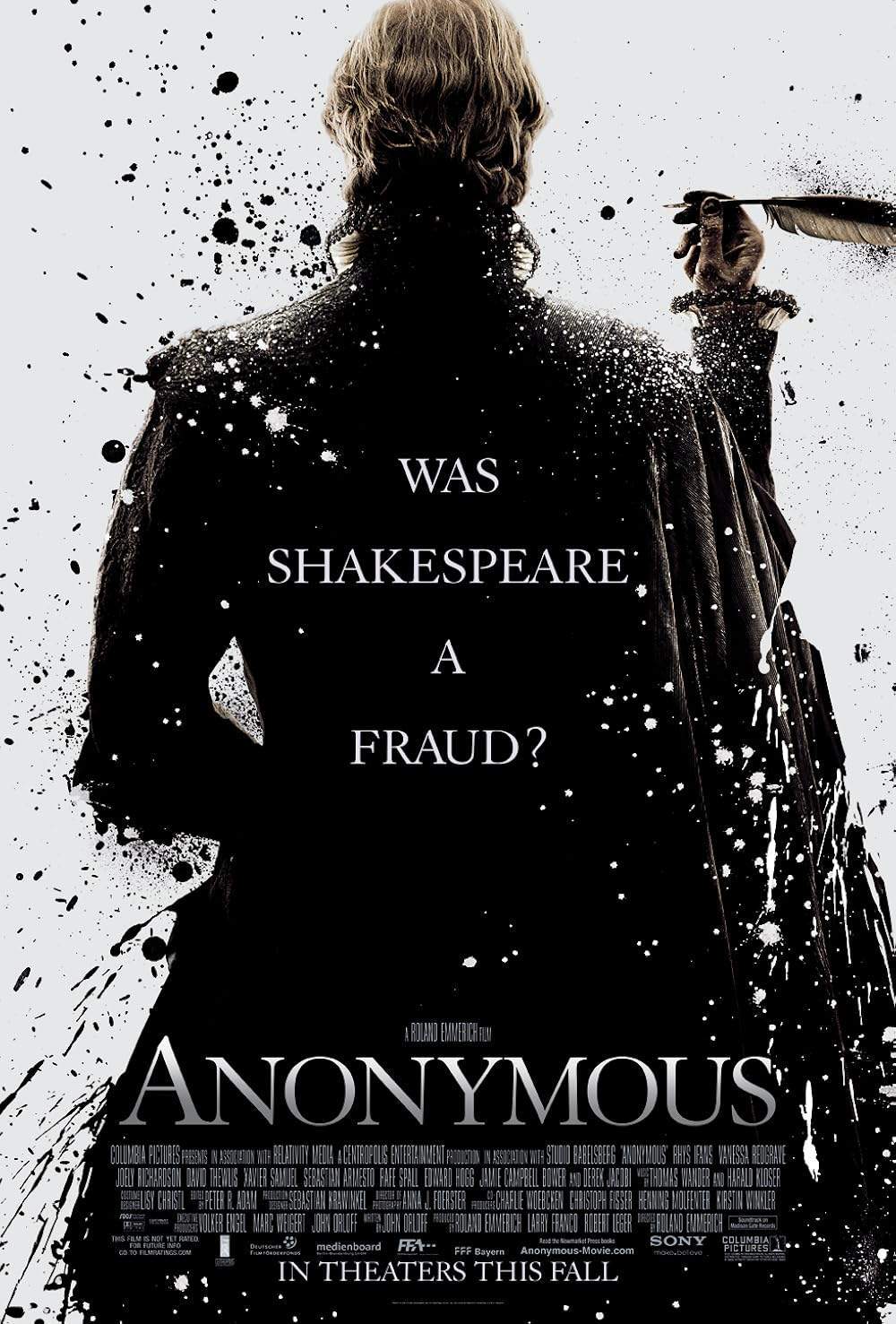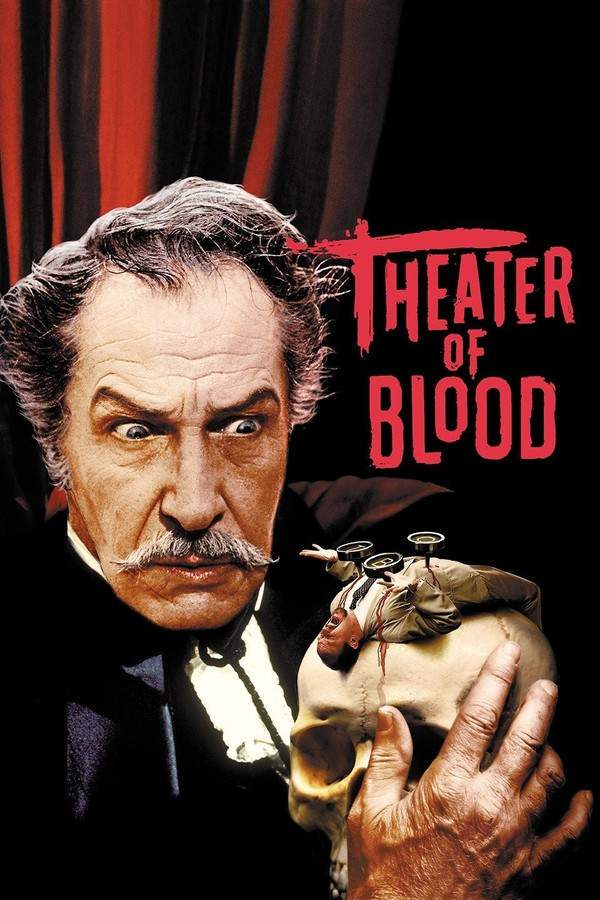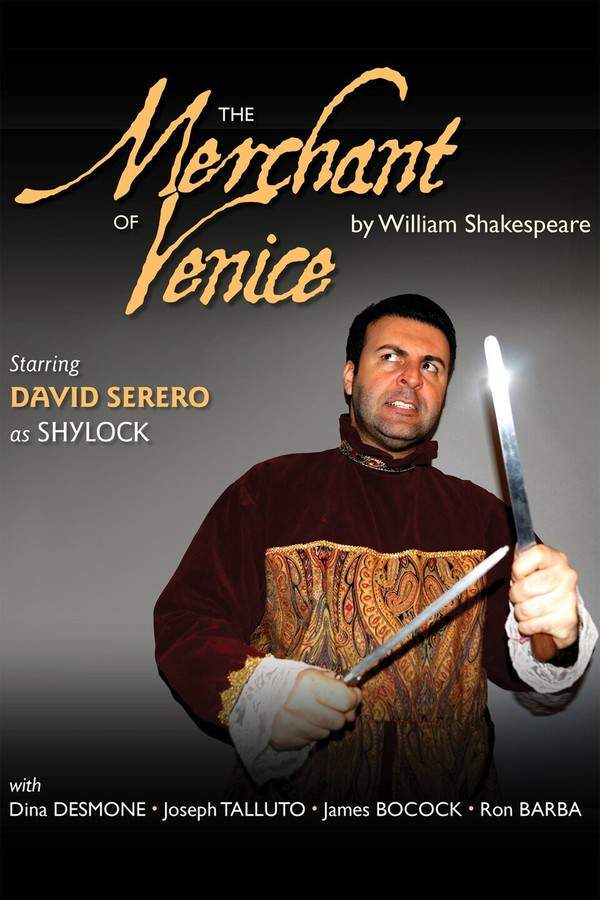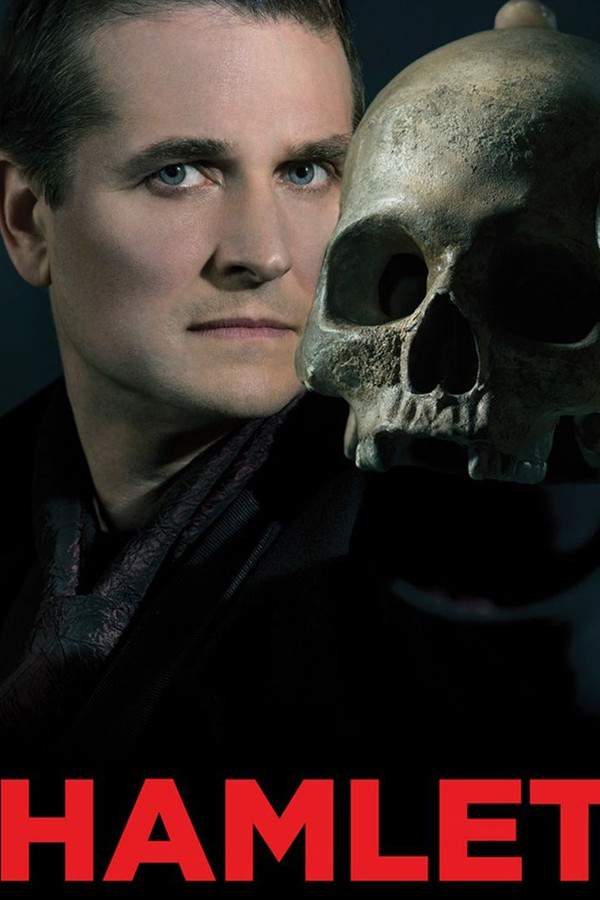
Anonymous 2011
Directed by

Roland Emmerich
Made by

Columbia Pictures
Anonymous Plot Summary
Read the complete plot summary and ending explained for Anonymous (2011). From turning points to emotional moments, uncover what really happened and why it matters.
In modern-day New York, an intriguing performance unfolds as Derek Jacobi steps onto the stage, delivering a compelling monologue that raises an essential query: why is there a striking absence of manuscript writings from the legendary William Shakespeare, who stands as the most celebrated playwright in history? Just as this thought lingers in the air, Ben Jonson, played by David Thewlis, prepares to make his entrance, leading the narrator to take the audience on a captivating journey into the past – a tale woven with elements of quills, swords, power, and betrayal.
The narrative swiftly jumps to Elizabethan London, where Jonson is seen dashing through the streets, clutching a parcel, while being relentlessly pursued by soldiers. He finds refuge in the theatre known as The Rose, where he hastily conceals the manuscripts he carries just before the theatre is set ablaze. Consequently, Ben is detained at the Tower of London, facing the stern questioning of the puritanical Robert Cecil. In a twist of fate, the writings he was presumed to have are found to be missing.
The storylinethen takes us back five years to portray an adult Edward de Vere, who lives in disgrace, exiled from the royal court under the waning rule of Queen Elizabeth I. As the queen’s health deteriorates and her marital status remains unchanged, the absence of an heir becomes increasingly dire. The aging Lord William Cecil, her chief advisor, and his son Robert manage the kingdom’s affairs. A faction of discontented nobles, led by Robert Devereux, the 2nd Earl of Essex, agitate for a solution to the succession dilemma, harboring desires for Essex to ascend the throne upon Elizabeth’s passing.
William Cecil and his son plot to secure the crown for King James VI of Scotland, a notion that enrages numerous nobles who rally behind Essex’s claim. Amid these political tensions, Edward cautions his close friend, Henry Wriothesley, the 3rd Earl of Southampton, against impulsive decisions that could escalate into civil discord.
While attending a performance of a play by Ben Jonson, Edward observes the remarkable potential of theatre to influence the masses. This inspires him to utilize the art of drama as a means to counteract the Puritanical influence of the Cecils. Following the unlawful declaration of Ben’s play, where he is subsequently arrested, Edward orchestrates his release, persuading Jonson to stage a play he himself has penned while pretending to be the author. The resulting production, Henry V, captivates the audience, garnering acclaim and even earning respect from Ben, who previously dismissed Edward’s talents as mere whims of a bored nobleman. However, during the accolades, an unexpected figure, the actor William Shakespeare, famously known as a “drunken oaf,” steps forward to claim authorship.
The narrative further reveals a poignant memory triggered by a gift accepted by Queen Elizabeth, harking back to the time when a young Edward showcased his talent in his own play, A Midsummer Night’s Dream. Following the death of the elder Earl of Oxford, the teenage Edward becomes a ward of the court under William Cecil’s guardianship, facing grave challenges to pen his works discreetly. This turmoil escalates to the point where he is forced to confront a servant spying on him, resulting in the servant’s death. Though William Cecil conceals this incident, he coerces Edward into marrying his daughter, Anne. Distracted by his longing for the queen, Edward embarks on an affair with Elizabeth, leading to a momentous surprise when she reveals her pregnancy with his child. Guided by William Cecil, she ultimately decides against marrying Edward, opting instead to surrender the child to a noble family, severing any further ties.
Following the revelation of an extramarital affair, Edward is banished from the court but is burdened with the knowledge that his newborn child is none other than Henry Wriothesley. As the tale returns to its present timeline, the boundaries between truth and recognition blur, as Shakespeare’s claim of authorship complicates Edward’s secret contributions. Even though the Cecils despise the popularity of the plays, which reflect Edward’s genius, they refrain from banning them due to the potential uprising from the populace. Ben, still frustrated by his role as mere executor of Edward’s work, grapples with feelings of inadequacy as Shakespeare uses deceit to accumulate wealth and fortifies his dominance in the theatrical arena.
Amid rising tensions, Edward decides to write Richard III as a method to incite insurrection against Cecil while simultaneously hoping to reach Elizabeth by sending her Venus and Adonis. However, just as the plan gains momentum, Ben betrays Edward, infuriated by feelings of jealousy and inadequacy, revealing the details to Robert Cecil. The ensuing chaos leads to the crowd being halted at the Bridge, leading to the capture of Robert Devereux and Henry by soldiers.
As secrets unravel, Edward learns that he is, in fact, one of Elizabeth’s children, entwining him deeper into a legacy fraught with tumult. Horrified but resolute, Edward seeks an audience with Elizabeth, pleading for mercy on behalf of Henry, while ultimately agreeing to remain anonymous as the true creator of the works attributed to Shakespeare. Despite Elizabeth’s agreement to save Henry, Essex faces the gallows for his treasonous actions.
Upon Elizabeth’s passing, James I of Scotland ascends the throne, choosing to retain Robert Cecil as his advisor. As Edward’s life nears its conclusion, he entrusts a collection of his writings to Ben, urging him to safeguard them from royal scrutiny. This moment of vulnerability reveals layers of respect and understanding between the two, culminating in an emotional exchange where Edward discloses his aspirations for acknowledgment and the deep-seated desire for Ben’s approval.
After Edward’s death, the narrative winds down, revealing to the audience that the fate of Robert Cecil as the reigning advisor led to the intended erasure of Edward’s legacy, but his plays remain invincible. Miraculously, Ben discovers Edward’s manuscripts among the ashes of the destroyed theatre. In a poignant moment, James I expresses his affinity for the works of Shakespeare during a court performance, breathing life into the enduring legacy of Edward de Vere amid whispers of history that may never dissolve.
Returning to the present, the narrator unveils the fates of the characters, illustrating that although Robert Cecil remained the king’s trusted ally, he was unable to extinguish the flames of Edward’s prolific contributions to the world of theatre. Meanwhile, Shakespeare opted to retreat to his hometown, spending his remaining days far from the theatrical limelight. Ben, however, realized his dream of being appointed the first Poet Laureate, eventually penning the introduction to the body of work mistakenly credited to Shakespeare. Ultimately, the narrator proposes that the story does not conclude with the characters; rather, the true author of these wondrous creations, whether named Shakespeare or concealed beneath the shadows of history, transcends time, living on through the everlasting power of words that resonate with breath and life.
Anonymous Timeline
Follow the complete movie timeline of Anonymous (2011) with every major event in chronological order. Great for understanding complex plots and story progression.
Introduction to the Story
In modern-day New York, Derek Jacobi opens the narrative with a monologue questioning the missing manuscripts of William Shakespeare. He emphasizes Shakespeare's status as the most performed playwright in history, setting the stage for a deeper dive into the world of Elizabethan theatre.
Pursuit in Elizabethan London
The story shifts to Elizabethan London, where Ben Jonson is seen fleeing from soldiers while carrying a crucial parcel of manuscripts. He desperately seeks refuge in The Rose theatre, but the soldiers set fire to the theatre in their quest to capture him.
Detention at the Tower
Following the fire at The Rose, Ben Jonson is captured and taken to the Tower of London. There, he faces intense questioning from the puritanical Robert Cecil about the missing writings, which are believed to be in his possession but are not found.
Edward's Fall from Grace
In a flashback, we see Edward, the Earl of Oxford, now banished from court during the waning years of Queen Elizabeth I's reign. As the aging queen's health declines, Edward grapples with the power dynamics at play, as he contemplates the future of the crown.
The Plot Thickens
The Cecils plan to secure the crown for King James VI of Scotland, which angers a faction of nobles led by Robert Devereux, the 2nd Earl of Essex. Tensions rise as Edward's young friend, Henry, is drawn into political intrigue, pledging support to Essex amid warnings from Edward.
The Power of Theatre
Edward witnesses a performance of Ben Jonson's play, realizing the profound influence theatre can have on public sentiment. He decides to utilize this medium against the Cecils, who are opposed to the theatre and its perceived falsehoods.
A New Play Emerges
After securing Ben's release from jail, Edward persuades him to stage his own work, Henry V, while posing as the true author. The play captivates audiences, with even Ben begrudgingly acknowledging Edward's talent as a playwright.
Elizabeth's Gift
Queen Elizabeth reminisces about her past when she received a memento from Edward that brings back memories of her youth. The woman who gifted her the item rekindles feelings about her own past, showcasing the intertwining of their lives.
Tragic Affair with the Queen
After a series of events, Edward's relationship with Queen Elizabeth leads to complications, including her pregnancy. Manipulated by William Cecil, their union is thwarted, and she is forced to send their illegitimate child away, resulting in Edward's heartbreak and eventual banishment.
Shakespeare's Betrayal
Despite claims of authorship, Shakespeare discovers the truth behind Edward's plays and begins extorting him for fame and fortune. This betrayal further complicates the relationship between the two playwrights and sows distrust in the theatre community.
Plot to Incite a Mob
Edward attempts to incite a rebellion against the Cecils by writing the play Richard III, planning to rally support from the populace. His strategy is thwarted when Ben betrays the plot to Robert Cecil, resulting in dire consequences.
The Climax of Betrayal
As the mob is confronted by soldiers, Essex and Henry find themselves in peril at the palace. The conflict highlights the dangers of political ambition as they surrender after being cornered, illustrating the chaos of civil strife.
A Mother's Secret
Edward learns the shocking truth about his lineage and the many illegitimate children Elizabeth had. This revelation forces him to confront the implications of his relationship with her, deepening the tragedy of his situation and shaping his future actions.
A Heartfelt Farewell
On his deathbed, Edward entrusts the care of his hidden manuscripts to Ben, confessing to his feelings of unrecognized talent and desire for approval. This moment reveals the depth of their complicated relationship and the legacy they share.
The Legacy of the Plays
After Edward's passing, talks of his true authorship surface, but Robert Cecil remains determined to erase his memory. Yet, even in death, Edward's influence endures as Ben promises to protect his works, leaving the future of the plays uncertain, yet forever impactful.
Anonymous Characters
Explore all characters from Anonymous (2011). Get detailed profiles with their roles, arcs, and key relationships explained.
Edward de Vere
Edward de Vere, portrayed as a nobleman with a passion for writing, grapples with his identity and ambitions amidst political turmoil. His intelligence and creativity are matched by personal struggles, including his conflicts with love and legacy. As he navigates court politics, he emerges as a complex figure torn between artistic dedication and societal expectations.
Ben Jonson
Ben Jonson is depicted as a talented yet frustrated playwright, caught in the shadow of Edward's genius. His fierce dedication to theatre conflicts with his insecurities and ambition, leading to a complicated rivalry. Despite moments of resentment, he ultimately recognizes Edward's brilliance and grapples with the ethics of authorship and recognition.
Queen Elizabeth I
Queen Elizabeth I is portrayed as a powerful yet vulnerable leader, facing personal and political challenges as her reign nears its end. Her complex relationships with Edward and her subjects illustrate the burdens of monarchy and the sacrifices made for the crown. Her decisions impact the fates of many and reflect the harsh realities of leadership in a turbulent time.
Anonymous Settings
Learn where and when Anonymous (2011) takes place. Explore the film’s settings, era, and how they shape the narrative.
Time period
Late 16th Century
The late 16th century marked the height of the Elizabethan era, characterized by political machinations, royal conflicts, and a flourishing of the arts. Queen Elizabeth I's health was declining, leading to a succession crisis that stirred political unrest among nobility. This period also witnessed the rise of notable playwrights and the establishment of a thriving theatre culture in England.
Location
Elizabethan London, The Rose Theatre, Tower of London
Elizabethan London is a vibrant city known for its rich cultural scene, particularly in theatre and the arts. The Rose Theatre, an iconic venue, hosted many plays in this era, becoming a hub for both playwrights and the social elite. The Tower of London, a symbol of royal power, served as a prison and a site of political intrigue during Queen Elizabeth I's reign.
Anonymous Themes
Discover the main themes in Anonymous (2011). Analyze the deeper meanings, emotional layers, and social commentary behind the film.
📜
Identity
The theme of identity is central to the story, as Edward de Vere struggles to claim his legacy as a playwright while grappling with his royal lineage. The play raises questions about authorship and the nature of artistic creation, highlighting how personal and political identities are intertwined. The constant struggle between anonymity and recognition reflects the broader societal conflicts of the era.
👑
Power
Power dynamics play a crucial role, showcasing the tension between the monarchy, the nobility, and the burgeoning influence of theatre. The quest for the throne and the manipulation of public opinion through drama underscore the volatile relationship between politics and art. As characters vie for control, their actions reveal how power can both inspire and corrupt.
⚖️
Betrayal
Betrayal emerges as a key theme, as characters navigate a treacherous landscape of alliances and loyalties. The choice to betray or remain loyal often comes with dire consequences, affecting personal relationships and political standings. This theme serves as a reminder of the fragility of trust in a world driven by ambition and survival.
Movies with Similar Twists and Themes
Uncover films that echo the narrative beats, emotional arcs, or dramatic twists of the one you're exploring. These recommendations are handpicked based on story depth, thematic resonance, and spoiler-worthy moments — perfect for fans who crave more of the same intrigue.
Featured on this page

What's After the Movie?
Not sure whether to stay after the credits? Find out!
Explore Our Movie Platform
New Movie Releases (2025)
Famous Movie Actors
Top Film Production Studios
Movie Plot Summaries & Endings
Major Movie Awards & Winners
Best Concert Films & Music Documentaries
© 2025 What's After the Movie. All rights reserved.













